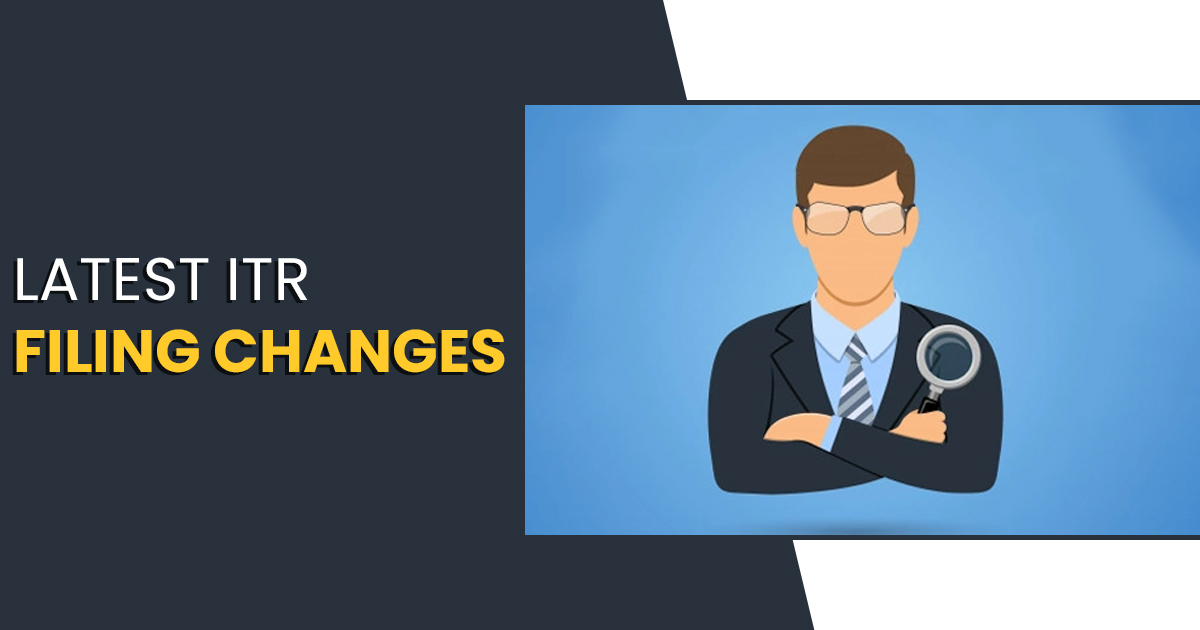
Every year there are some changes that are started in the forms provided to furnish the income tax returns and processes engaged, that the assessee must find out. Indeed in this year, there are some amendments that are built to the forms and engaged with the processes. There are certain revisions that you must find out when you furnish the tax returns.
Latest Upadte
10th September 2021
- “The Income-tax department has released the press release regarding the extension of due dates for filing ITR forms, Tax Audit Reports, etc under the Income-tax Act, 1961.” Read Press Release
Revisions in Income Tax Returns Form
Income tax return (ITR) 1 is called the SAHAJ form is the commonly practised tax form. The resident individual whose income through the salary or pension is less than Rs 50 lakh can furnish the same where he owns one house property and agriculture income of up to ₹5,000.
He/she shall not be subjected to furnish the returns using the ITR 1 Sahaj form if the individual is the director of the firm or holds the investments in the unlisted equity shares.
But in this year the qualification for the form shall get amended. Section 194N of the Income Tax Act requires banks, post offices and co-operative banks to deduct TDS (tax deducted at source) of non-filers of the income tax returns. according to the newly notified forms the assessee shall not be subject to furnish the returns through ITR-1.
Inside the tax forms, one needs to show whether you are choosing the new tax regime or the old one.
Moreover, you shall need to show the dividend income from the shares and the equity instruments this year beneath the major income from the additional sources, the dividend income gets taxable. Prior to the dividend income was revealed beneath the major exempt income.
In Finance Act, 2020, employees receiving ESOPs (employee stock option plans) from eligible startups were permitted to submit taxes.
Tax Deducted at Source (TDS) on the perquisite stands deferred to earlier of the following events, expiry of 5 years from the allotment year of ESOPs, date of sale of ESOPs through the employee or the date of elimination of the employment. These employees shall unable to furnish the ITR-1, they shall rather need to furnish the ITR-2. The respective ITRs is been revised as per that.
Income Pre-filled Information
The tax department shall use to give some income pre-filled to the assessee from this year. “Taxpayers are asked to confirm the details in each section. These details are pre-filled from various sources, but it is advisable to recheck them with the actual information. If there is any mismatch, the taxpayer shall edit the pre-filled details, stated by Tarun Kumar, a New Delhi-based chartered accountant.”
The Facility of JSON Utility
Until the last year, the return can be furnished via assessee login or through the excel and Java utilities available for e-filing. “This year, the department has done away with the Java or Excel utility and launched the JSON (JavaScript Object Notation) utility for e-filing. There is a common offline utility for filing ITR-1, ITR-2, ITR-3 and ITR-4 for the assessment year 2021-22. Although the return can be filed through the JSON utility, it is advisable to use the e-filing platform as it is the easiest way to file returns,” stated Kumar.
Prolongation of the Last Date But No Relief from the Penalty Interest
The extension of the last date will not give you any relief from the penal interest that the assessee needs to furnish the case there is an outstanding tax liability either below self-assessment tax or advance tax. Interest beneath Section 234A is levied if the ITR filing gets late.
Let’s say that the due date for ITR filing is 31st July and the individual furnished the ITR on 5 August then the interest shall be levied with the rate of 1% per month upon the due tax. But similar to the last year the government has given the relief beneath section 234A to an assessee whose self-assessment tax is up to Rs 1 lakh.
Under Sections 234B and 234C, the penal interest is levied on the late furnishing of the ITR. beneath section 234B a person is needed to file the interest with a 1% rate if the assessee has not filed the advance tax or has furnished the tax less than 90% of the tax liability. Beneath section 234C interest is levied in case the advance tax furnished is less than the prescribed installments.
If there is less advance tax payment then a 3% interest rate gets levied for that specific quarter. Thus it is good for the assessee to furnish the ITR and file the unpaid tax within the said time so as to avoid the interest penalties.